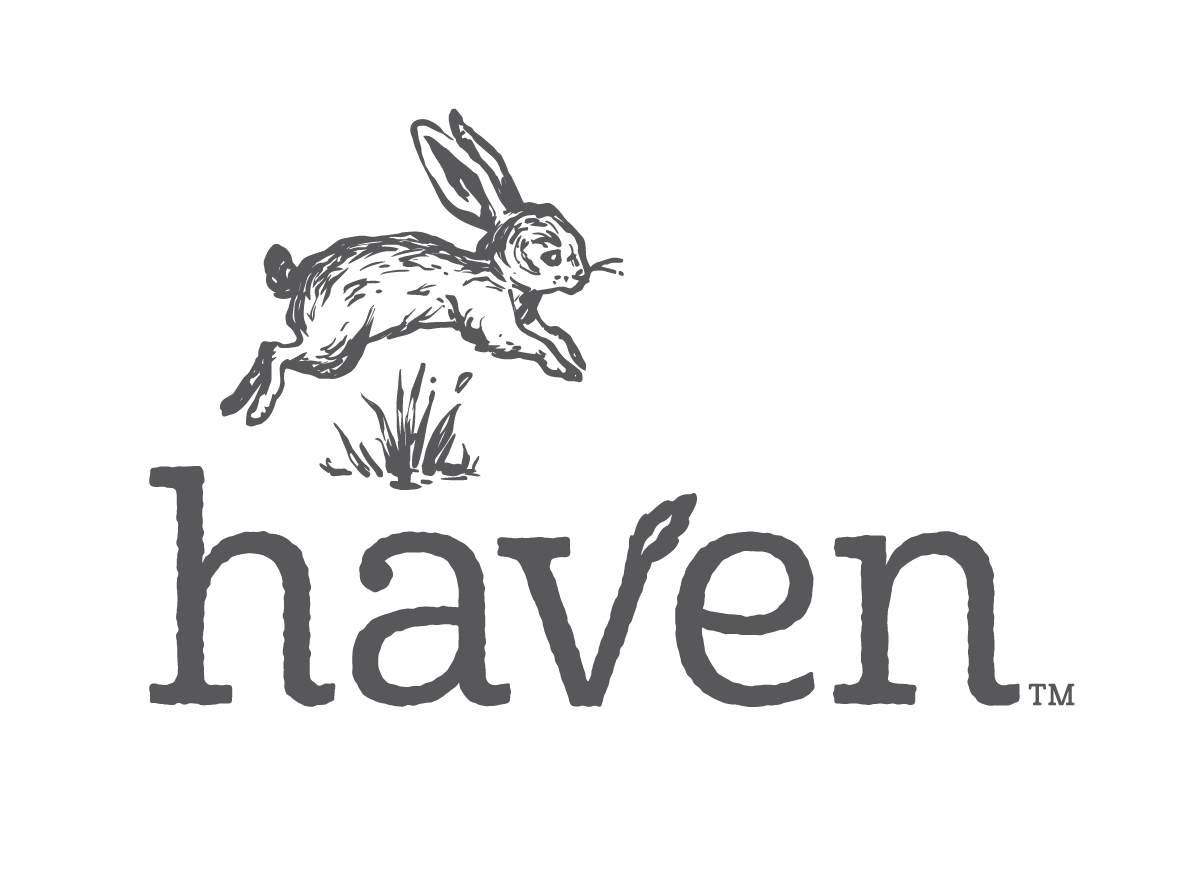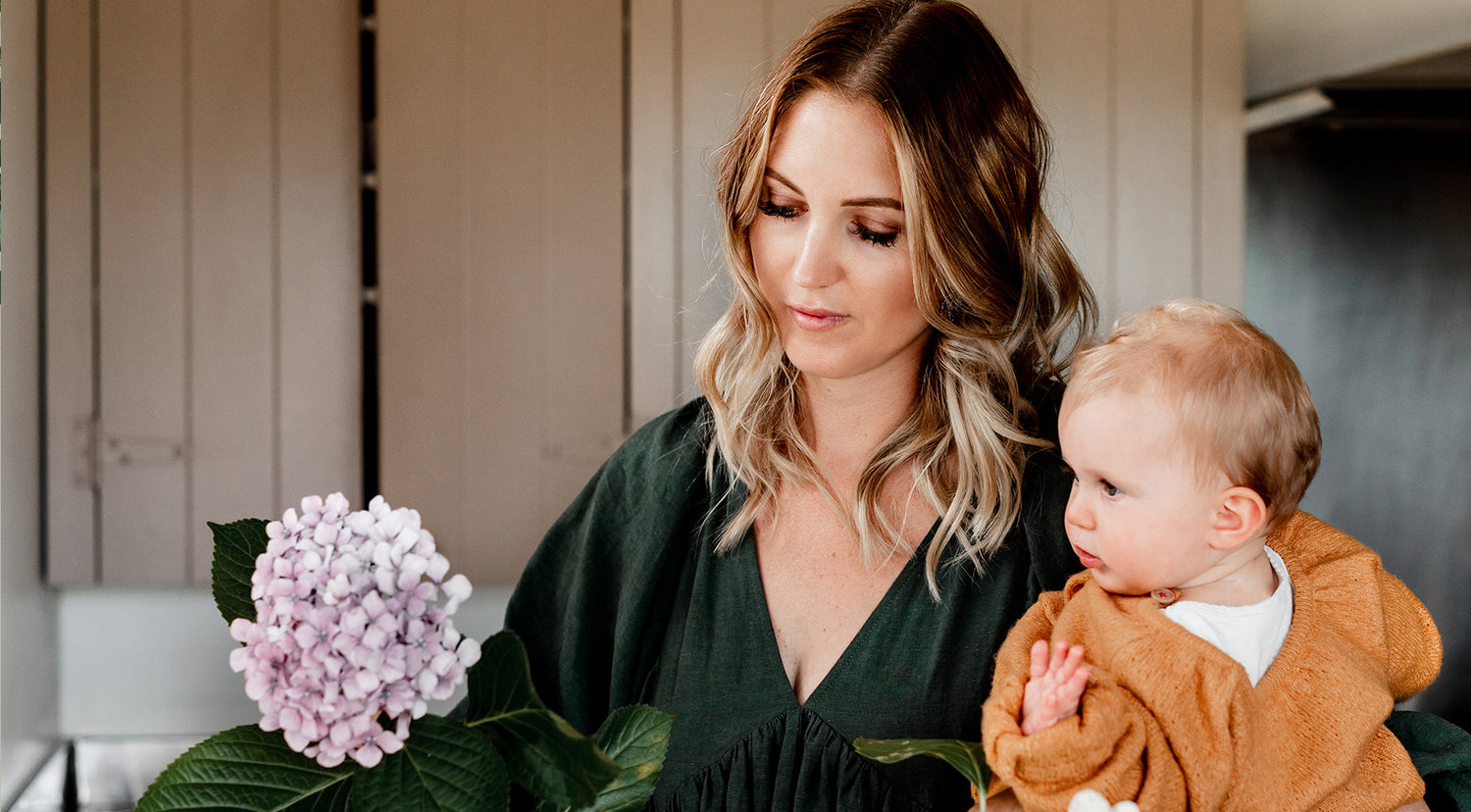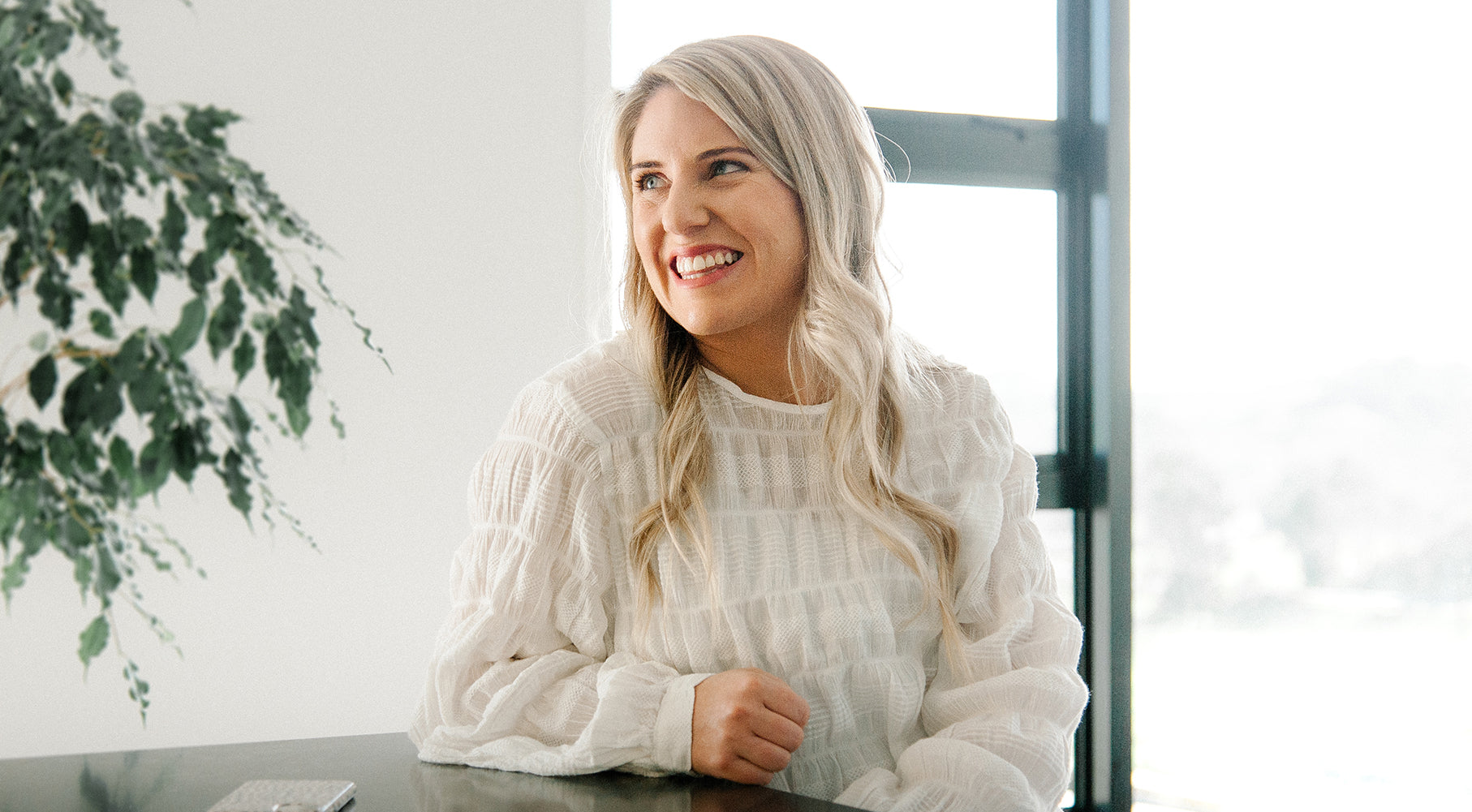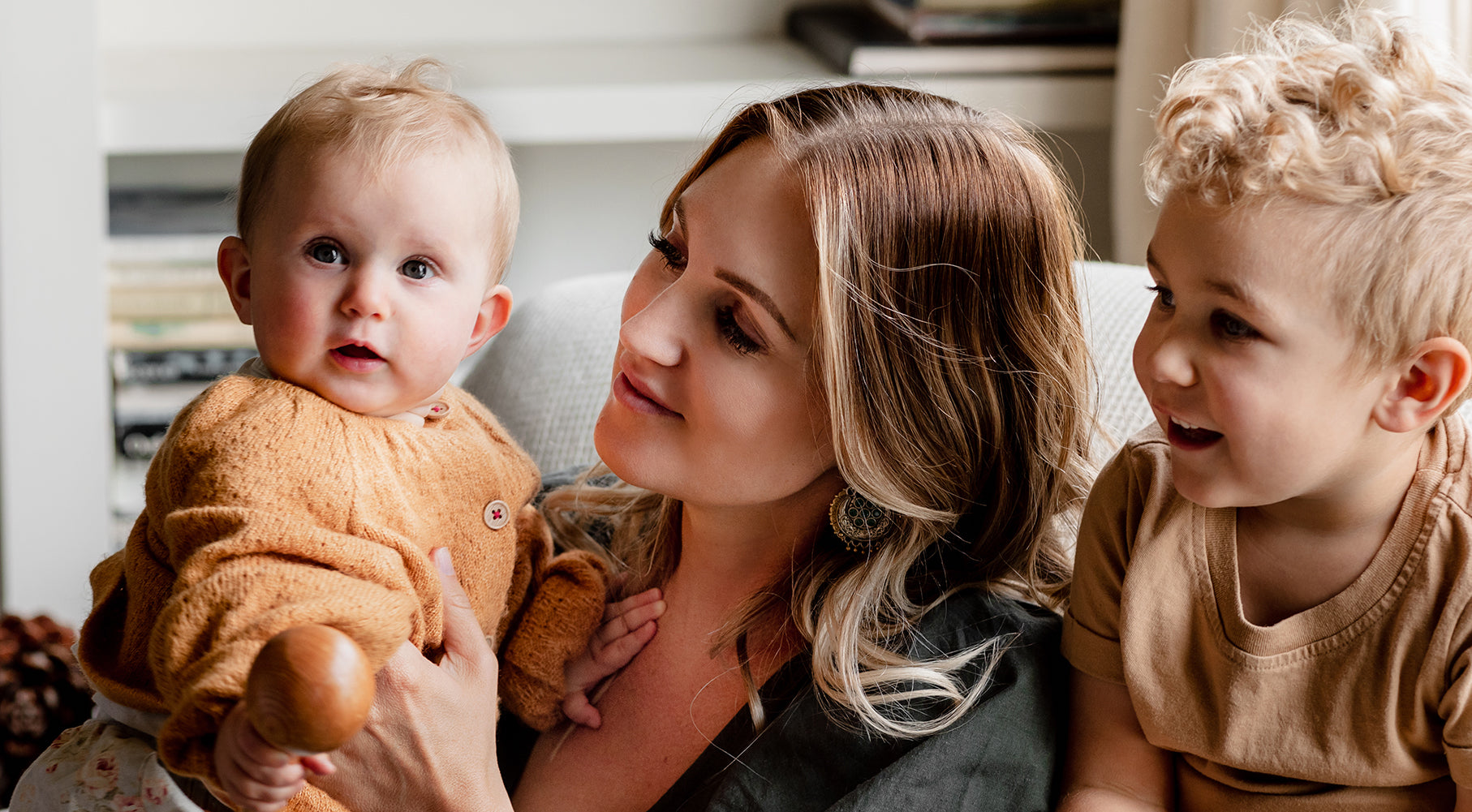We chat to our resident nutritionist and health expert for Haven, Gina Urlich, about how she came to work in women’s health and nutrition and what tips and tricks she has picked up along the way…
1. Tell us about your career and how you got to where you are today?
I started my career in nursing, spending a few years in palliative care before moving to Mater Mothers Maternity Hospital in Brisbane where I worked between a gynaecology ward and maternity. I spent over ten years at the Mater Mothers and towards the end I felt a real calling to learn more about preventative medicine and holistic care. I was seeing women at the end stage of gynaecological cancers—they would tell me that they wish they knew what their body was telling them early on and that they might not have been in the position they were in, had they known their heavy, painful periods were actually a message from their body and not a "normal" part of being a woman.
So I decided to study a BHSc in nutritional medicine and immersed myself in all things women's health from hormonal conditions to fertility to pregnancy and then, quite naturally, I fell into infant nutrition. I feel so grateful to be working in a career that I'm so passionate about.
2. What is it about women’s health and nutrition that you love?
I love being able to educate women about their own body, something I wish we learnt in school. When we understand how our body works and the hormonal fluctuations that take place within a monthly cycle, we can really work with this synergy and use it to our advantage. When we understand how our body works we can also understand when something is not quite right and recognise that our body communicates to us with signs and symptoms. Our body will whisper to us for a period of time; if we ignore those niggles it will then yell at us in the form of chronic disease. But sadly, so many symptoms that women suffer with have been normalised as 'part of being a woman'.
Nutrition is one of the greatest environmental factors that can prevent a disease (or feed one). Natural health care can also get to the bottom of what is driving a condition and treat it accordingly with natural medicine, bringing the body back to equilibrium.
3. What have been your career highlights?
· Running my own successful clinic and treating thousands of women around the world.
· Writing for top magazines in NZ and Australia.
· Also working alongside incredible innovative brands like Haven.
4. What is one thing you wish you had known pre-babies?
· Being the best mum you can be doesn’t mean being ‘perfect’ – there’s no such thing.
· To follow your intuition, listen to your heart and learn to ignore the critics.
· Do not let the judgement of others have a place in your mothering story.
· Give your baby the best of you, but also give yourself the same care. Be gentle to yourself, you're going to go through huge changes physically, emotionally and spirituality.
· There will be times when “good enough” parenting is all you can do to survive, and then there will be times when you thrive and know that every stage will pass, and often all too quickly.
· The days can be long, but the years pass fast.
5. What is your advice to mothers wanting to “get back into shape” after giving birth?
Your body has just grown a human (miraculous) — there is no bouncing back only growing forward. Having babies has taught me that my body is not here to look good in a bikini but to honour how incredible it is to grow and birth life into this world. I’m finally at a place in my life where I have deep love for myself and my body (it takes time). All of it: the squishy tummy, cellulite, wrinkles and wobbly bum. Because it’s not only the vessel that carries me, but it also created my four delicious children.
We’re so quick to try to bounce back to our jeans and jobs without really acknowledging how miraculous we are. Place your focus on nourishing yourself and movement that supports mental health and strength.
6. Best foods to nurture mothers after giving birth?
· Lots of warm, nourishing, grounding foods—soups, stews, bone broth, porridge and plenty of hydration.
· Focus on macronutrients. A sensible macronutrient balanced diet means protein, good fats and complex carbohydrates from whole food sources with each meal and snack. I can’t stress the importance of protein enough; protein depletion can occur very quickly if there is not adequate dietary intake. A general rule is 1g of protein/kg of body weight but during pregnancy and breastfeeding this will increase to about 1.4g/kg.
· Make your snacks quality! If you do breastfeed, recognise that your energy needs will remain elevated from pre-pregnancy needs(by roughly 300-500 calories per day). That’s the equivalent of adding 1-2healthy snacks per day.
· Continue with your multivitamin too. This will help fill any gaps that your diet is missing & restore those lost nutrients from pregnancy and birth.
7. What nutritional advice would you recommend to women trying to conceive?
We know that three months prior to conception is a timeframe that can have a significant impact on sperm and egg health... and ultimately, your baby. Men make new sperm every three months, so the male’s diet and lifestyle will impact the quality, quantity and morphology of his sperm. There are certain nutrients that can help support healthy sperm production and I recommend working with a natural health practitioner prior to conception.
Women: I say to act as though you're already pregnant. This means cut alcohol, limit caffeine, take your prenatal vitamin and eat a whole food, macronutrient balanced diet. We can also impact our egg quality three months prior to conception, as well as our hormone balance in the reproductive cycle to hold and nourish a pregnancy.
Think about how much time and money we put into planning a wedding... we should be putting this into our future children and I highly recommend a preconception plan. (We offer this in our clinical services).
8. How do women’s nutritional needs change throughout life?
Women’s nutritional requirements change between puberty, pregnancy, breastfeeding and into menopause. Due to all these fluctuations in a woman's life, her requirements are quite different to a males. Some examples are a menstruating woman who needs more iron due to monthly blood loss. During pregnancy, a woman requires additional folic acid to support baby's growth and development. Then, during menopause, bone-building nutrients are of greatest importance. What we are putting into our body during our younger years is like a bank deposit that we can use later in life.
9. How do you and your family plan your weekly meals?
I'm a bit sporadic really, there is not much planning! I have a few go to meals: like a bolognese that I load with veggies and then use it again the following night by turning it into healthy nachos or jacket potatoes. I love a meal where I cook once and eat twice. I put together a 'Feed the Family' recipe e-book which is loaded with ideas that get a nourishing meal on the table in under 30 minutes.
10. Who inspires you?
I have met some wonderful friends through Instagram. I really love following @tinyheartseducation , @bumpnbub and @dr.carriejones These are all accounts that share loads of education and empowerment.
11. What is the best way to get healthy food into fussy toddlers?
Persistence is everything! Keep offering a variety of food, even if they don't eat it, as regular exposure on their plate will help familiarise them with foods and eventually they eat it. My 14-year-old is testament to that and I'm playing the same offering game with my younger children now. We often fall into the trap of offering safe food that we know they'll eat but keep offering variety along with safe food.
I love to let my children serve their own plates, this creates a sense of independence and lets them choose what is going on the plate. I often say minimum of two veggies on the plate so they actually choose the vegetables.
Sit down with your toddlers and be a good example. Family meals are a beautiful opportunity to connect and chat about the day or just enjoy each other's company. Take the focus off the food and enjoy the moment. You'll be surprised what they eat when the emphasis is on fun conversations and not food...
